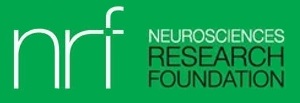Neurosurgery Training
The St George’s Hospital neurosurgery department has been renowned around the world as a centre of excellence for brain and spinal surgery since it was established at its original site at Atkinson Morley Hospital in 1869.
The department provides a comprehensive service for the diagnosis and treatment of disorders affecting the brain, skull, spine and nervous system for patients from across the south of England, and has a rich history of training and education.
St George’s Hospital is the only hospital in the UK to be located on the same site as a university – the prestigious St George’s University of London, the only university in the country dedicated solely to medicine.
At St George’s we have a number of training and education opportunities for physicians from around the world:
Specialist registrars
The Neurosurgery unit is part of the South Thames Neurosurgery rotation that includes King’s College Hospital and Hurstwood Park Neurological Centre.
Our unit prides itself in the training of registrar (resident) neurosurgeons. Our consultants spend a large part of their time teaching registrars. The ‘morning meeting’ which was introduced by Mr Henry Marsh offers excellent learning opportunities for neurosurgical registrars. The registrars also benefit from the high volume of clinical activity in the unit.
In the last 10 years four of our trainees (Ed McKintosh, Matt Tait, Matt Crocker, Tim Jones) achieved top marks in the FRCS(SN) exam and were awarded the Norman Dott medal. Currently, two of the consultants (Simon Stapleton, Andrew Martin) are examiners for FRCS(SN).
Clinical fellows
We offer two 1-year clinical fellowships, one in neuro-oncology and one in complex spinal surgery.
The neuro-oncology fellowship offers the chance to gain experience in a variety of advanced techniques such as gliolan resection of glioblastoma, endoscopic skull base surgery and awake craniotomies. The fellow is responsible for the weekly neuro-oncology MDT meeting.
The complex spinal fellowship offers training in a variety of techniques such as minimally invasive spinal surgery as well as spinal instrumentation for fractures and tumours. There is also the opportunity to learn from spinal orthopaedic surgeons. The fellow takes part in the weekly complex spinal MDT meeting.
Clinical observers
Clinical observers from around the world are attached to the unit for periods of time ranging from a few days to several months. The observers attend all meetings and the clinics and theatre lists of the consultants they are attached to.
Research fellows
Some of our registrars take 1 – 3 years out of the clinical rotation to work full-time on a research project. This work often leads to the award of a higher degree such as MD(res) or PhD. These posts are highly prestigious and we usually have two research fellows at any one time. One of these fellowships is called the McKissock fellowship. The research fellows also participate in the on call rota and are expected to attend the morning teaching sessions as well as the monthly morbidity and mortality meetings. Three of the four Norman Dott medalists in our unit have completed a research fellowship here.


